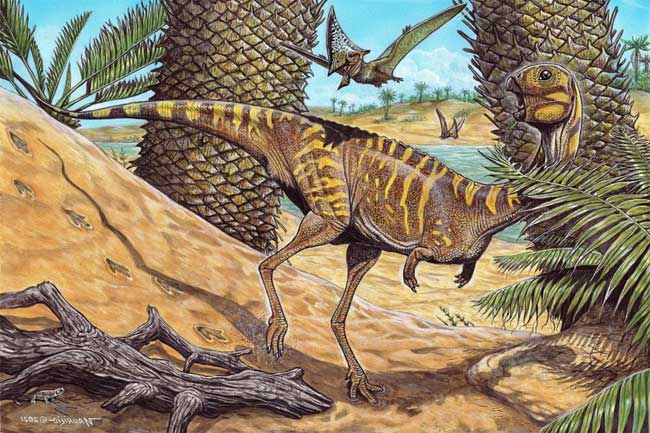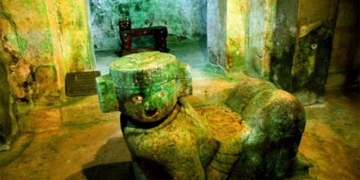Brazilian paleontologists discover a 70 – 80 million-year-old skeleton of an unknown carnivorous dinosaur.
The creature, named Berthasaura leopoldinae, is a small theropod dinosaur, measuring about 1 meter in length and standing 80 cm tall. Despite being a carnivore, it had no teeth; instead, it possessed a small, pointed beak-like mouth.
Simulation of the Berthasaura leopoldinae dinosaur living 70 – 80 million years ago. (Video: AFP)
“The toothless mouth raises questions about the diet of Berthasaura leopoldinae. However, this does not mean it could not eat meat. Many bird species, such as hawks and eagles, are carnivorous and use their beaks for feeding. It’s also possible that this new dinosaur was omnivorous, eating anything it could find in a harsh environment,” explained Geovane Alves Souza, the lead author of the study from the National Museum of Brazil in Rio de Janeiro.
The skeleton of the creature was found along a rural road in the state of Paraná, southern Brazil. In a report published in the journal Nature on November 18, the excavation team emphasized that this is a “very rare” discovery and one of the most complete Cretaceous dinosaur fossils found in Brazil.

Simulation of the Berthasaura leopoldinae dinosaur.
“The fossil also preserves the skull, jaw, vertebrae, sternum, pelvis, and both forelimbs and hindlimbs,” added Alexandre Kellner, the museum director.
The naming of Berthasaura leopoldinae honors Bertha Lutz, a renowned Brazilian scientist and politician who passed away in 1976. She was a pioneer in the women’s rights and human rights movements, significantly contributing to women’s suffrage in Brazil. Bertha Lutz also worked at the National Museum as a naturalist specializing in poison dart frogs.


















































